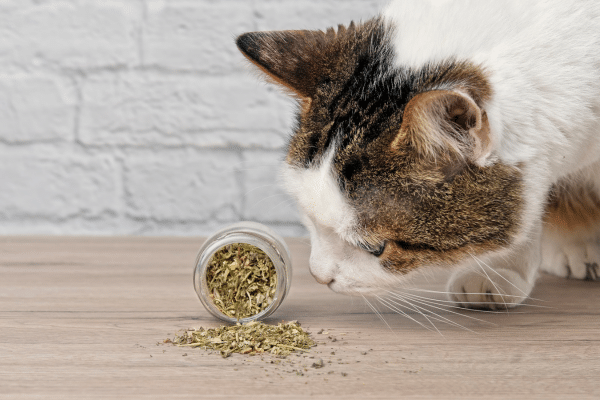Mosquitoes are not just a nuisance but also pose significant health risks, transmitting diseases like malaria, dengue, and Zika virus. Finding effective ways to repel these pests is crucial for outdoor activities and overall health. This guide explores seven natural methods to deter mosquitoes, offering safe, environmentally friendly alternatives to chemical repellents. Each method is backed by science or traditional use, ensuring effectiveness. From the pleasant aromas of essential oils to the strategic planting of certain flowers, these strategies provide a comprehensive approach to keeping mosquitoes at bay.
Contents
Tea Tree Oil

Tea tree oil, derived from the leaves of the Melaleuca alternifolia tree, is celebrated for its antiseptic properties and has been found to be an effective insect repellent. Research indicates that this essential oil can disrupt the sensory functions of mosquitoes, making it difficult for them to locate targets. Its strong scent is particularly unappealing to many types of insects, including mosquitoes, acting as a natural barrier against bites. For those seeking a natural repellent, tea tree oil presents a promising option, combining health benefits with effective insect-repelling capabilities.
To utilize tea tree oil as a mosquito repellent, it should be diluted with a carrier oil, such as coconut or almond oil, to prevent skin irritation. A ratio of one part tea tree oil to ten parts carrier oil is recommended for topical application. This mixture can be applied to exposed skin areas or used in diffusers to protect indoor spaces. Additionally, a few drops added to laundry can help keep clothing mosquito-free. It’s important to conduct a patch test before widespread use to ensure no adverse reactions occur, providing a safe and effective way to deter mosquitoes naturally.
Citronella

Citronella is widely recognized for its mosquito-repelling properties, derived from the essential oils of Citronella grass. Its effectiveness lies in its ability to mask the scents that mosquitoes find attractive, such as carbon dioxide and lactic acid emitted by humans. Citronella’s strong, lemony scent is pleasant to humans but a potent deterrent for mosquitoes, making it a staple in outdoor repellent products. Unlike chemical repellents, citronella offers a natural and safe alternative, ideal for those preferring eco-friendly options.
For optimal use, citronella can be employed in various forms, including candles, oils, and infused bracelets. When used outdoors, citronella candles can create a protective scent barrier around dining or seating areas, significantly reducing mosquito presence. Essential oil blends containing citronella can be applied to the skin, offering personal protection without the harsh ingredients found in commercial repellents. Planting citronella grass in gardens or pots near entryways can also serve as a natural repellent, providing both aesthetic appeal and functional mosquito deterrence.
Lavender

Lavender, known for its soothing aroma and therapeutic properties, also acts as an effective mosquito repellent. The plant’s essential oil contains compounds like linalool and geraniol, which are unattractive to mosquitoes. These natural ingredients disrupt the olfactory senses of mosquitoes, making it difficult for them to identify their targets. Lavender’s pleasant scent makes it an ideal choice for personal and environmental use, blending aesthetics with functionality. The plant’s versatility in repelling mosquitoes, while promoting relaxation and sleep, underscores its dual benefits.
Incorporating lavender into a mosquito repellent strategy can be done through various methods. Planting lavender around the home, especially near windows and doors, can prevent mosquitoes from entering. Lavender oil, when mixed with a carrier oil, can be applied directly to the skin, offering personal protection without the use of harsh chemicals. Additionally, dried lavender can be placed in wardrobes or drawers to keep clothes free from mosquitoes. For indoor spaces, lavender sachets or oil diffusers can create a mosquito-repellent atmosphere, further demonstrating the plant’s multifaceted use in combating these pests.
Peppermint Oil

Peppermint oil is another natural remedy known for its mosquito-repellent properties. The strong scent of peppermint, characterized by its high menthol content, is particularly effective in warding off mosquitoes. This essential oil not only repels but can also kill mosquitoes and their larvae, offering a robust solution to mosquito infestations. Studies have shown that peppermint oil can be as effective as some commercial repellents, making it an appealing option for those seeking natural alternatives. The cooling sensation of peppermint also provides relief from the itching caused by mosquito bites, adding to its appeal.
To use peppermint oil as a repellent, it is essential to dilute it with a carrier oil to minimize skin irritation. Applying this mixture to exposed skin can protect against mosquito bites in high-risk areas. Peppermint plants can also be strategically placed around the home to deter mosquitoes with their natural aroma. For indoor use, adding a few drops of peppermint oil to water in a spray bottle creates an effective mosquito repellent that can be used on curtains, furniture, and bedding. This approach not only keeps mosquitoes at bay but also leaves a refreshing scent in the home.
Eucalyptus And Lemon Oil

Eucalyptus and lemon oil, when combined, form a powerful mosquito repellent. This blend leverages the strong scents of both oils to effectively repel mosquitoes, with research supporting their combined efficacy. Eucalyptus oil, particularly lemon eucalyptus oil, has been identified by the Centers for Disease Control and Prevention (CDC) as an effective mosquito repellent. The addition of lemon oil enhances the blend’s repellent properties and adds a pleasant, citrus aroma. This combination is not only effective against mosquitoes but also safe for use around children and pets, offering a natural alternative to chemical repellents.
Creating a mosquito repellent using eucalyptus and lemon oil involves mixing these essential oils with a carrier oil or alcohol. This blend can be applied to the skin or used in diffusers to protect indoor spaces. Additionally, homemade repellent sprays can be created for applying on clothing or outdoor gear, providing an extra layer of protection during activities in mosquito-prone areas. The versatility of this blend allows for its use in various settings, from backyard gatherings to camping trips, ensuring comprehensive protection against mosquitoes.
Marigolds

Marigolds are not only vibrant and decorative but also possess natural mosquito-repelling properties. These flowers contain pyrethrum, an ingredient commonly found in commercial insect repellents. Planting marigolds in gardens or around the perimeter of outdoor living spaces can create a natural barrier against mosquitoes. The strong scent emitted by marigolds is unappealing to mosquitoes, effectively deterring them from the area. This method provides an aesthetically pleasing way to reduce mosquito presence, blending functionality with garden design.
For those without garden space, marigolds can be grown in pots and placed on patios, balconies, or near entryways to keep mosquitoes at bay. In addition to their repellent properties, marigolds attract beneficial insects that prey on mosquito larvae, further enhancing their effectiveness in mosquito control. The ease of growing and caring for marigolds makes them an accessible option for natural mosquito repellence, offering beauty and practicality in equal measure.
Catnip

Catnip, a member of the mint family, has been found to be more effective than DEET in repelling mosquitoes, according to some studies. The active ingredient, nepetalactone, is the primary compound responsible for catnip’s repellent properties. This natural deterrent is safe for humans and pets, making catnip an attractive option for eco-conscious individuals. The ease of growing catnip adds to its appeal, allowing for the plant to be used in various forms, from fresh to dried, in the battle against mosquitoes.
Using catnip for mosquito control can be as simple as planting it in gardens or pots around outdoor areas. The plant’s natural scent acts as a repellent, while the leaves can be crushed and applied to the skin for personal protection. Catnip can also be brewed into a tea and sprayed around outdoor areas to deter mosquitoes. This versatile approach to mosquito repellence showcases catnip’s potential as a powerful and natural deterrent, providing an alternative to chemical-based repellents.
The Bottom Line
The battle against mosquitoes does not have to rely on harsh chemicals. Nature offers a plethora of effective solutions that are both safe and pleasant to use. From the aromatic oils of lavender and tea tree to the vibrant blooms of marigolds, these natural methods provide a comprehensive approach to mosquito control. By incorporating these strategies, individuals can enjoy outdoor activities and indoor spaces without the annoyance and risk of mosquito bites. Embracing these natural repellents not only protects health but also contributes to a more sustainable and harmonious coexistence with the environment.


